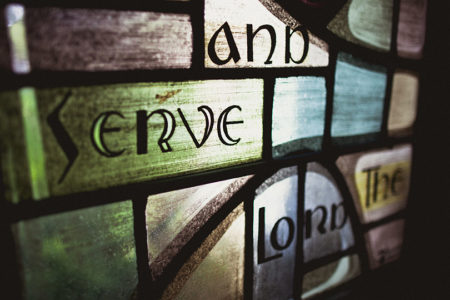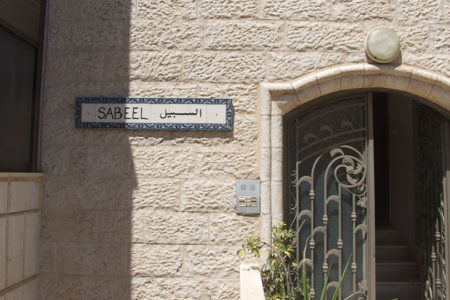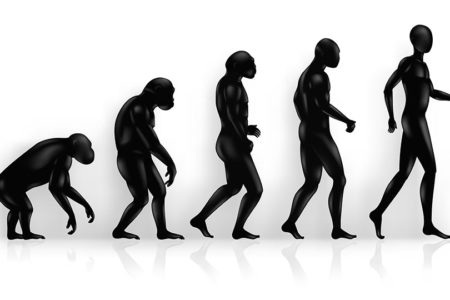The Final Warning Hebrews 12:18–29
In a fifth and final warning to Jewish believers in Christ, the book of Hebrews contrasts the experience of God’s people at Mount Sinai as they received the Mosaic Covenant with the blessedness of being associated with Mount Zion under the New Covenant. Both Mounts represent defining moments as God spoke to His people. For Israel, Mount Sinai was a place of terror and judgment should the nation disobey God’s Law. However, Mount Zion is pictured as a place of grace, joy, and eternal redemption for all believers in Christ.
Hebrews 12:18–29 summarizes the main thrust of the book, emphasizing that what Christians possess in Christ, their great High Priest, puts them in a far better position than under the Mosaic Covenant.
The Mount of Dread
To make an indelible impression on his readers, the author provided a soul-stirring description of what their Jewish forefathers experienced at Mount Sinai:
For you have not come to the mountain that may be touched and that burned with fire, and to blackness and darkness and tempest, and the sound of a trumpet and the voice of words, so that those who heard it begged that the word should not be spoken to them anymore. (For they could not endure what was commanded: “And if so much as a beast touches the mountain, it shall be stoned or shot with an arrow.” And so terrifying was the sight that Moses said, “I am exceedingly afraid and trembling”) (vv. 18–21; cf. Ex. 19:10–25; 20:18–21; Dt. 4:10–24).
Moses told the Israelites to wash their clothes and refrain from sexual relations with their wives for two days; and on the third day, God would speak to them from Mount Sinai. The mountain was off limits to both people and animals. Anyone touching even its base was to be “stoned or shot with an arrow” (Heb. 12:20).
On the third day, a thick cloud of smoke completely engulfed Mount Sinai. Thunder and lightning filled the atmosphere as a violent earthquake shook the mountain. Darkness descended, and the Israelites trembled at the eerie feeling of doom.
God instructed Moses to lead Israel out of its camp to meet with Him at Mount Sinai. A loud, deafening trumpet was sounded, whereupon the Lord descended from heaven to the top of the mountain. The visible manifestation overwhelmed Israel with wonderment and awe. When the people heard God speak, they stood petrified, trembling in fear; and they begged Moses to speak instead of God: “You speak with us, and we will hear; but let not God speak with us, lest we die” (Ex. 20:19).
Hebrews 12:19–20 explains they were convinced that if God continued speaking His Law, they would perish because of their sin. Initially, even Moses was frightened: “I am exceedingly afraid and trembling” (v. 21).
At Sinai, Israel stood before a holy, omnipotent, omniscient God who was unapproachable by vile, sinful man. Mount Sinai represented the Old Covenant, with its Mosaic system of laws that required people to keep all its commandments—which was humanly impossible. Those who broke the Law were subject to judgment, separation from God, and eventual death and punishment.
God originated the sacrificial system to provide atonement for sin so that sinful people could approach a holy God. Yet these sacrifices could never take away sin (10:4); they merely functioned as a vicarious substitute to propitiate the wrath of God’s judgment against them.
The Mount of Deliverance
A contrast is made between the terrors experienced at Mount Sinai and the blessings believers possess in their relationship to Jesus Christ.
First, Mount Zion is in heaven, not on Earth: “But you have come to Mount Zion and to the city of the living God, the heavenly Jerusalem” (12:22). This city is free from bondage (Gal. 4:26), was sought by Abraham (Heb. 11:10), is described in the book of Revelation (Rev. 21:2—22:5), and is called Mount Zion. It is God’s abode and a place of rich blessing and joy where believers will dwell with Jesus Christ.
Second, someday believers in Christ will be in the presence of “an innumerable company of angels” who are gathered in festive celebration (Heb. 12:22; cf. Rev. 5:11). These angels continually worship God and stand ready to carry out His will in heaven and on Earth. In the New Jerusalem, we will worship and serve alongside them.
The words general assembly (Greek, panegurei; Heb. 12:23) refer to large, festive gatherings, such as the Olympics. Scholars differ on whether to connect them with the word angels (v. 22), church (v. 23), or both. Most commentators connect the words with angels and translate the phrase “to myriads of angels in festal gathering.”
Third, Mount Zion is the eternal home for Christians, referred to as the “church of the firstborn who are registered in heaven” (v. 23). The word church (Greek, ekklesia) refers to a “called out group of people” comprised of regenerated Jews and Gentiles who, from the day of Pentecost to the Rapture, constitute the body of Christ. The church also is referred to as “first-born,” identifying its spiritual birthright in union with Christ as Savior and making believers “heirs of God and joint heirs with Christ” (Rom. 8:17).
Today the church dwells on Earth, but its citizenship already has been “registered in heaven” (Heb. 12:23; cf. Lk. 10:20; Rev. 13:8; 21:27); and it will one day reside in the heavenly Jerusalem. This will be a festive gathering of the church in heaven, in contrast to the terrifying setting of Sinai.
Fourth, the supreme Ruler in heaven is “God the Judge of all” (Heb. 12:23). The verse emphasizes His position and supreme right to judge all things in heaven and on Earth. Israelites at Mount Sinai could not approach God’s presence; they would have died. However, at Christ’s crucifixion, the veil into the Temple’s Holy of Holies was torn from top to bottom (Mt. 27:51), giving all believers access to God’s presence, where they can receive mercy and grace (Heb. 4:16). That was an enlightening thought to someone ready to forsake Christ, return to ritualistic Judaism, and suffer God’s judgment because of his decision.
Fifth, the phrase to the spirits of just men made perfect (12:23) refers to Old Testament saints whose spirits and souls are in heaven without their resurrected bodies. They are “just” (justified), or redeemed, and need to be “made perfect” (complete) in their redemption—which will occur when they receive their resurrected bodies prior to Christ’s Second Coming (Dan. 12:2; Heb. 11:40).
Sixth, all come to faith through “Jesus the Mediator of the new covenant” (Heb. 12:24). The word new (Greek, neos) refers to new in time and emphasizes the revelation that Jesus is the Mediator of the New Covenant through His shed blood, which provides complete cleansing from sin (8:7–13; 9:11–15; 10:15–18).
Seventh, Christ “sprinkling” His blood on the cross “speaks better things than that of Abel” (12:24). After Abel was murdered by his brother Cain, his blood cried out to God from the ground for judgment (Gen. 4:10). However, Christ’s shed blood is far better because it purchased salvation and cleanses all believers from sin.
The choice between being under the Old Covenant of Law or the New Covenant of grace could not be clearer: Mount Zion is light, grace, peace, rest, forgiveness of sin, inexpressible joy, access to God, and eternal life. Mount Sinai is fear, death, and judgment. Believers must choose Mount Zion.
The Moment of Decision
God has another warning to anyone considering deserting the faith:
See that you do not refuse Him who speaks. For if they did not escape who refused Him who spoke on earth, much more shall we not escape if we turn away from Him who speaks from heaven, whose voice then shook the earth; but now He has promised, saying, “Yet once more I shake not only the earth, but also heaven” (Heb. 12:25–26).
God warns believers that if Israel did not escape temporal judgment on Earth when it refused to heed God who spoke to them at Mount Sinai, they certainly will not escape God’s temporal discipline if they refuse to heed His message from heaven through Christ. Greater is their responsibility to the message of God in Christ (cf. 2:2–3).
When God spoke at Mount Sinai, “[His] voice…shook the earth.” It was symbolic of a great shaking in the future when He will shake “not only the earth, but also heaven” (12:26). The verse quotes Haggai 2:6 and refers to the shaking before and at Christ’s Second Coming (cf. Joel 3:16; Zech. 14:4–5; Mt. 24:29; Rev. 16:18, 20) when He will destroy Gentile world rule (Dan. 2:34–35, 44–45; Hag. 2:21–22).
The author mentioned a “removal of those things that are being shaken, as of things that are made, that the things which cannot be shaken may remain” (Heb. 12:27). The destructible things are those under the Mosaic Covenant; the permanent things are the New Covenant blessings in Christ, the New Jerusalem, and all that pertains to God’s eternal Kingdom. A final shaking will take place after the Millennial Kingdom, when God destroys the material universe (2 Pet. 3:10, 12; Rev. 20:11) and creates a new heaven and new Earth that will be eternal (2 Pet. 3:13; Rev. 21:1).
An application to the entire warning follows: “Therefore, since we are receiving a kingdom which cannot be shaken, let us have grace [be grateful], by which we may serve God acceptably with reverence and godly fear” (Heb. 12:28). Since God has provided grace, salvation in Christ, and future blessings in an eternal Kingdom, these persecuted Jewish believers to whom the book of Hebrews is addressed should in no way consider returning to Judaism. Instead, they should serve God gratefully, with prayer and praise, and worship Him in reverence and awe. Their faithful perseverance would determine their rewards in the Kingdom (1 Cor. 3:14).
There is a final, poignant warning: “For our God is a consuming fire” (Heb. 12:29; cf. Dt. 4:24). All who returned to Judaism would face God’s displeasure and discipline. True, God bestows grace on all believers. But He is also a God of judgment and will discipline us as He did Israel in the wilderness and Esau, mentioned earlier (Heb. 12:16–17).
Have you heeded the warning? Which Mount have you chosen?







